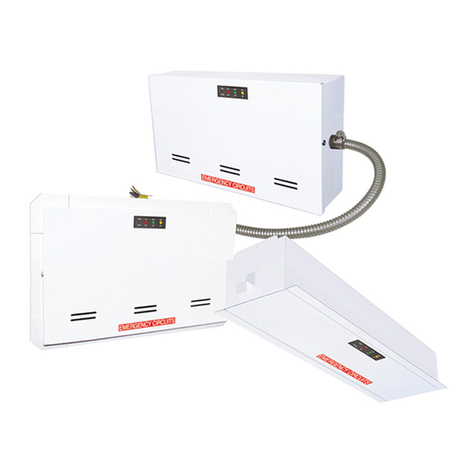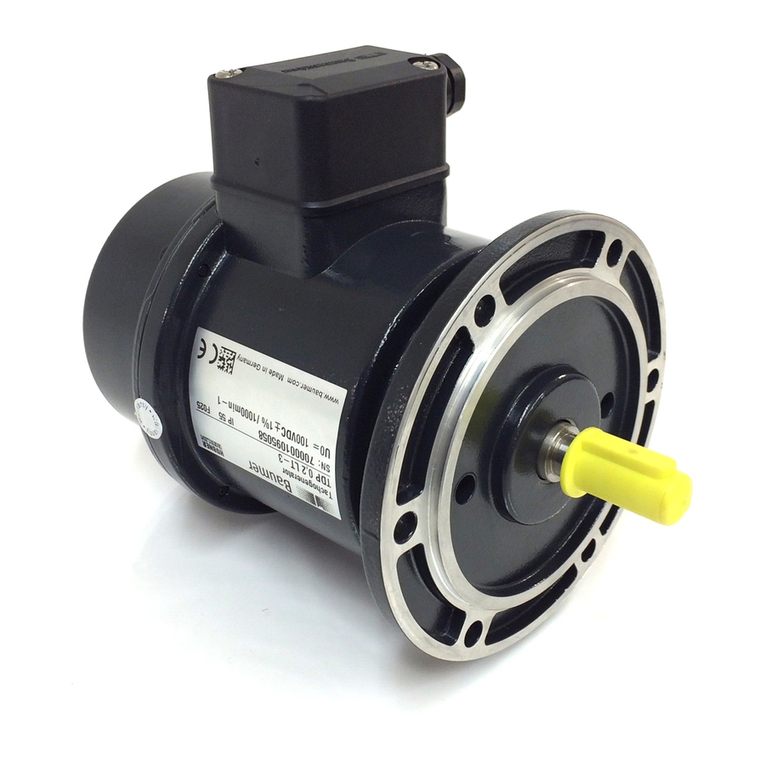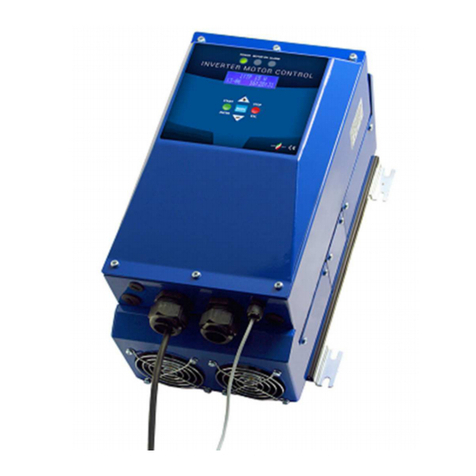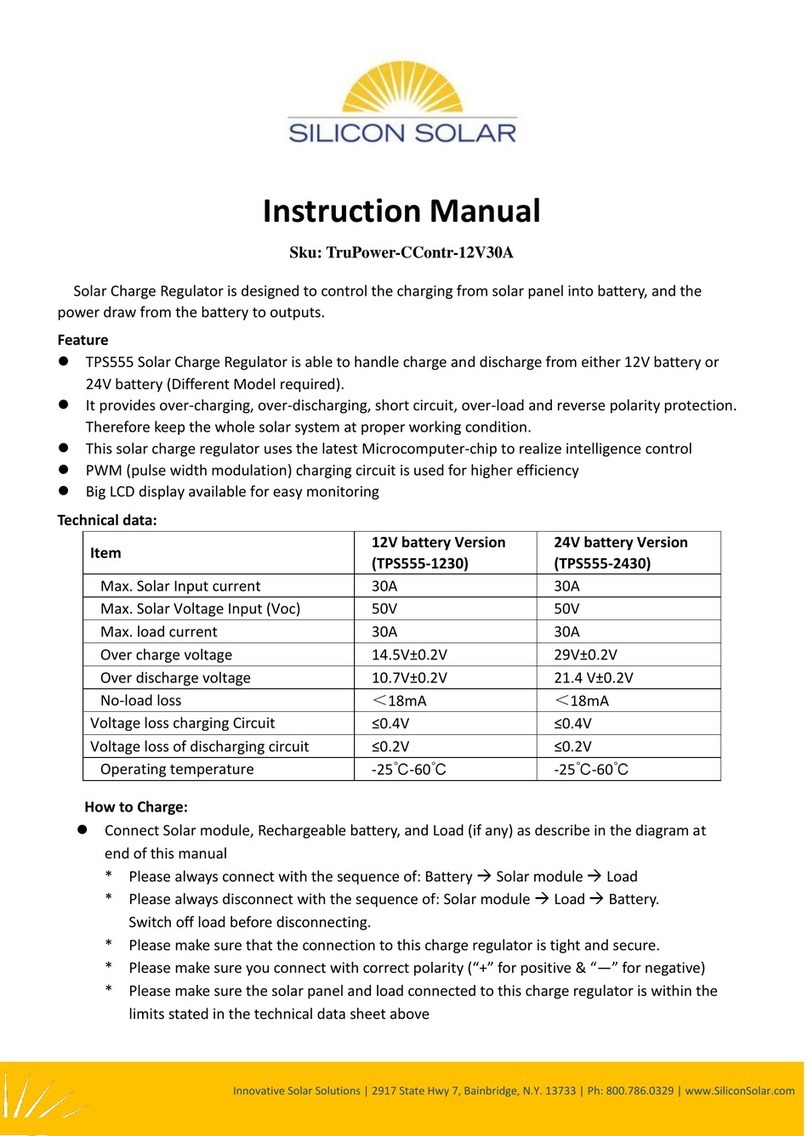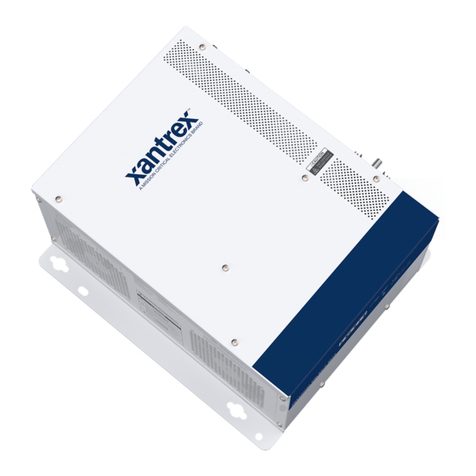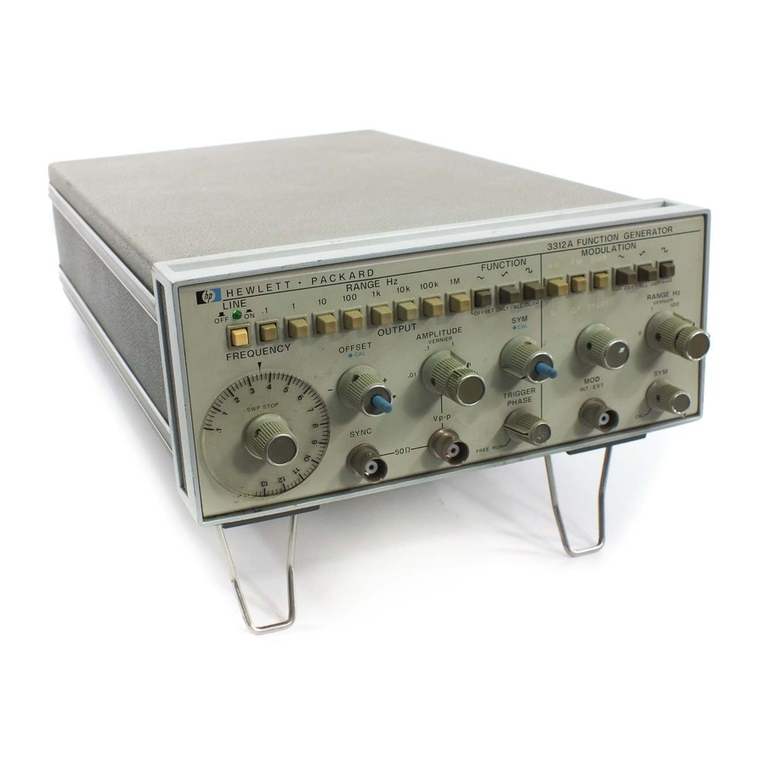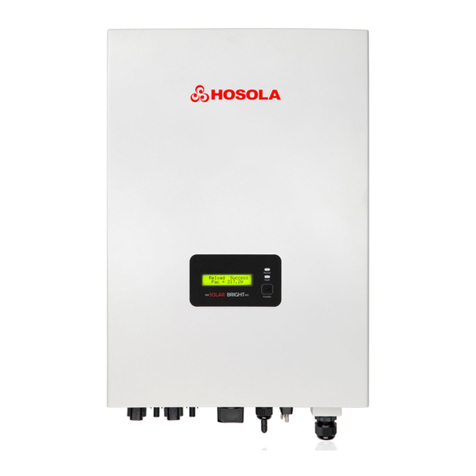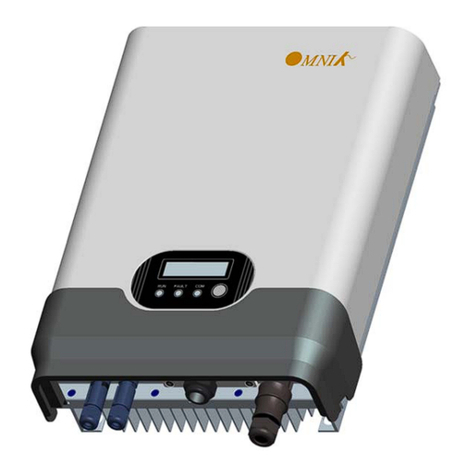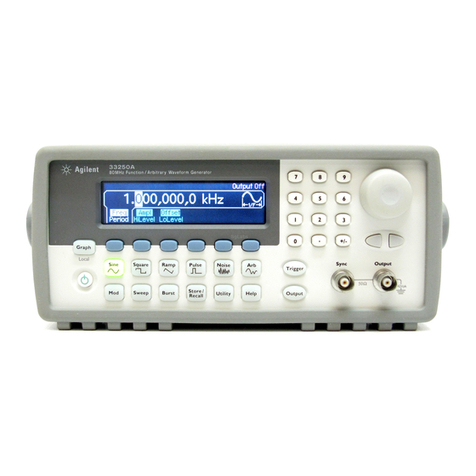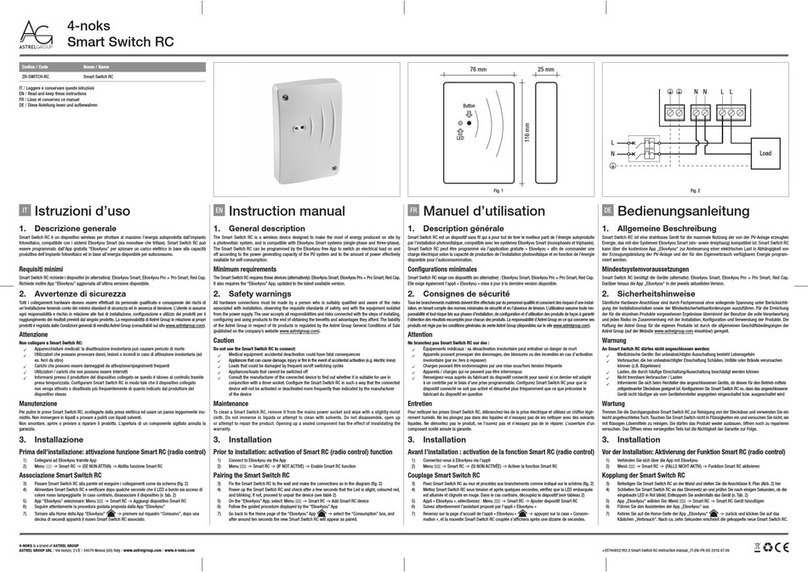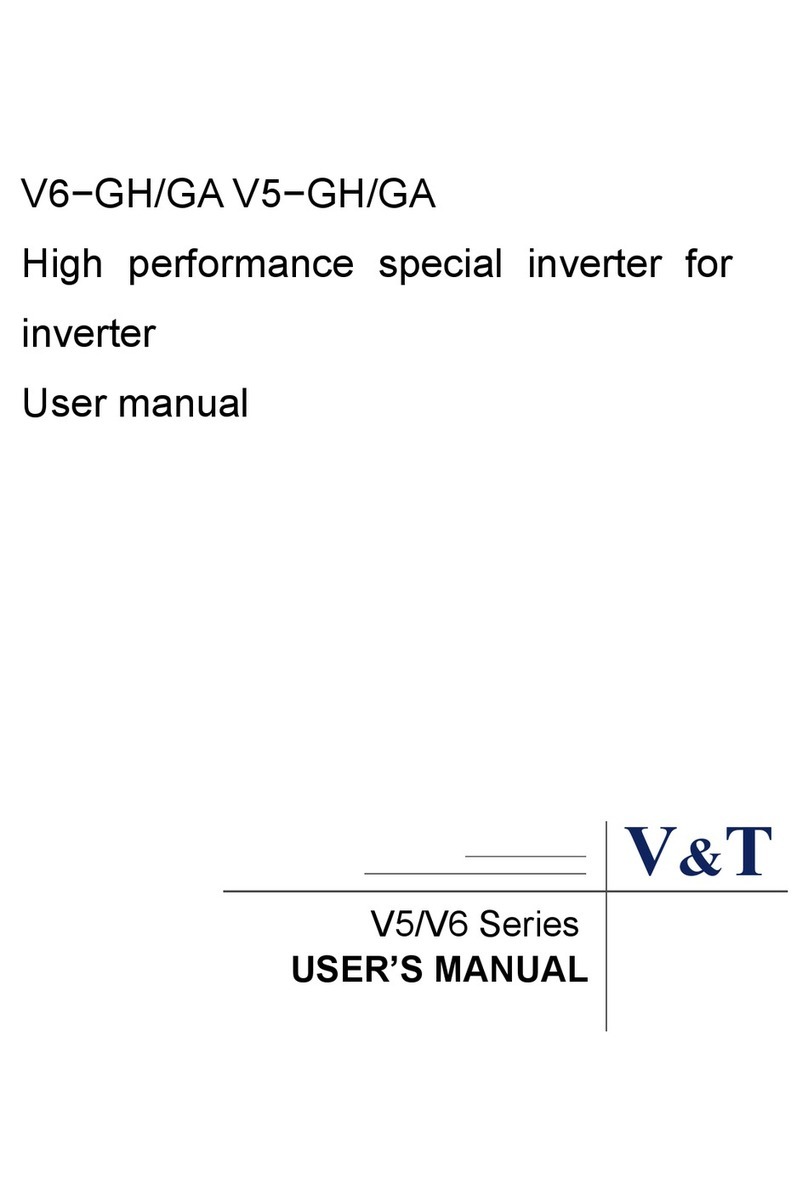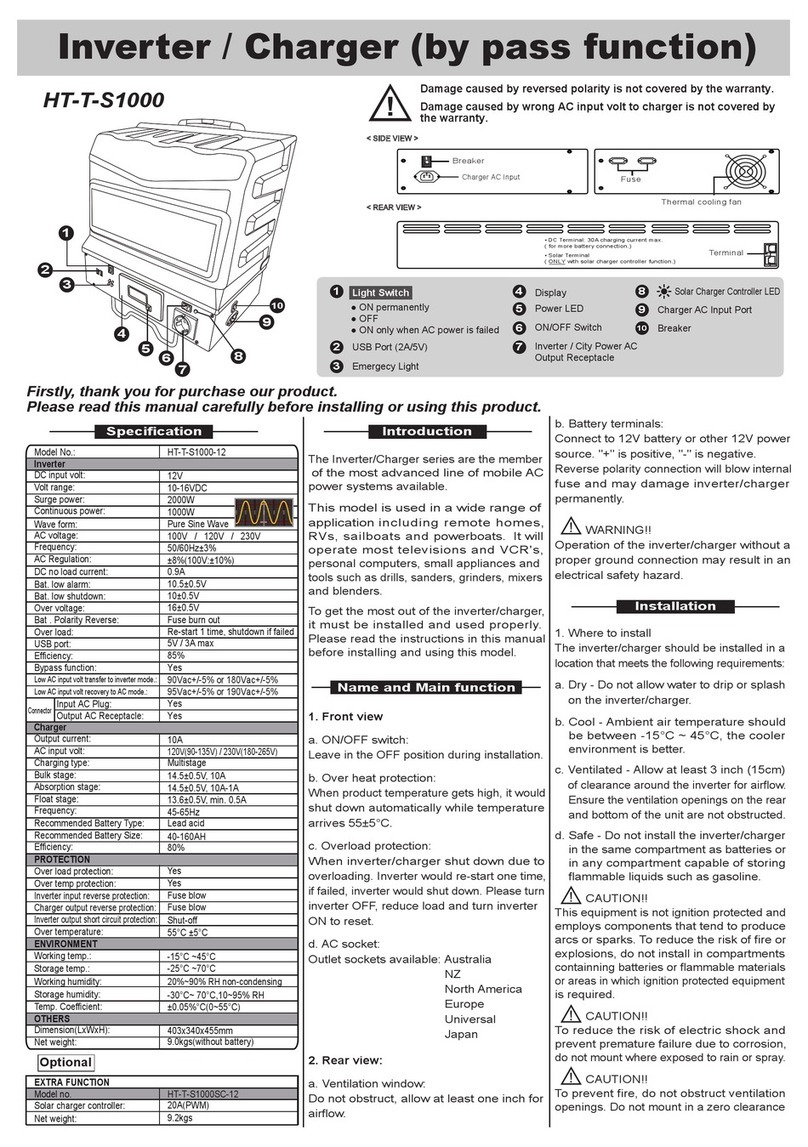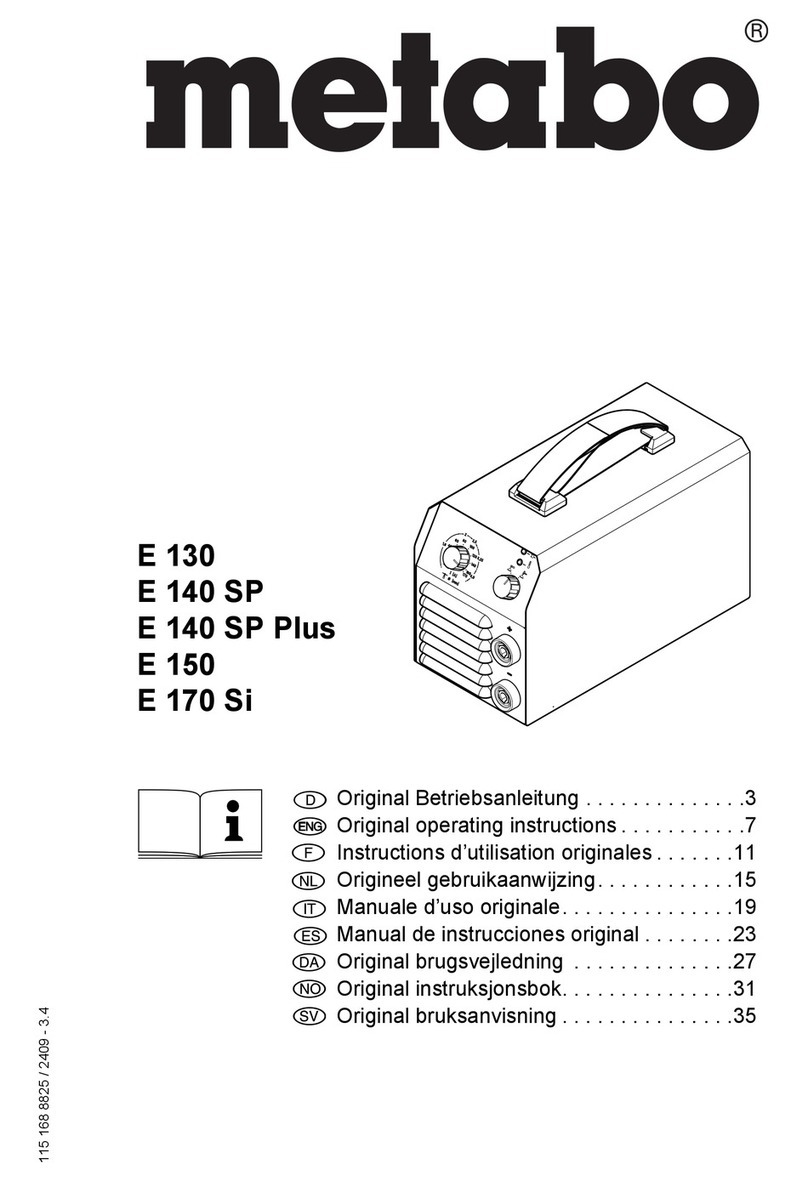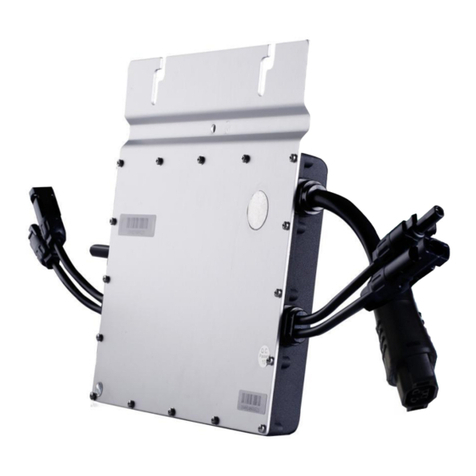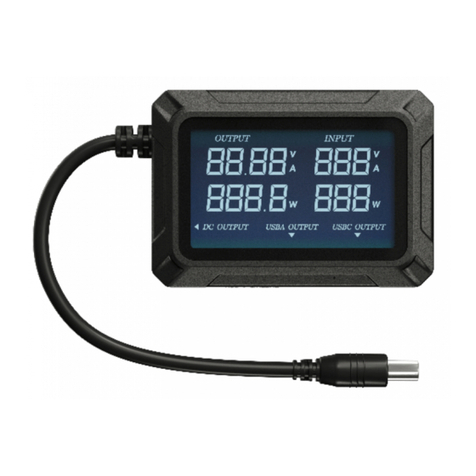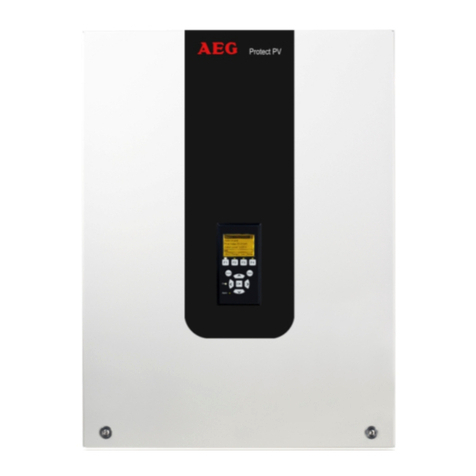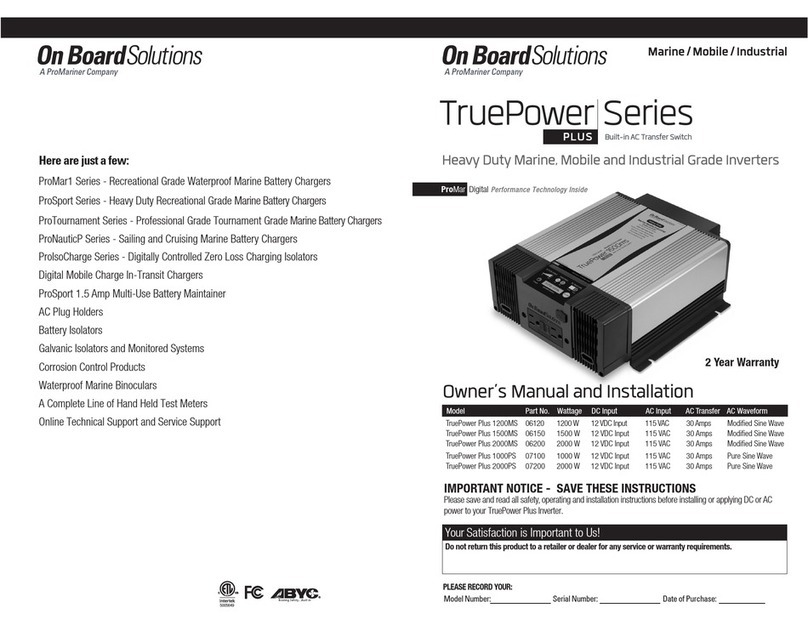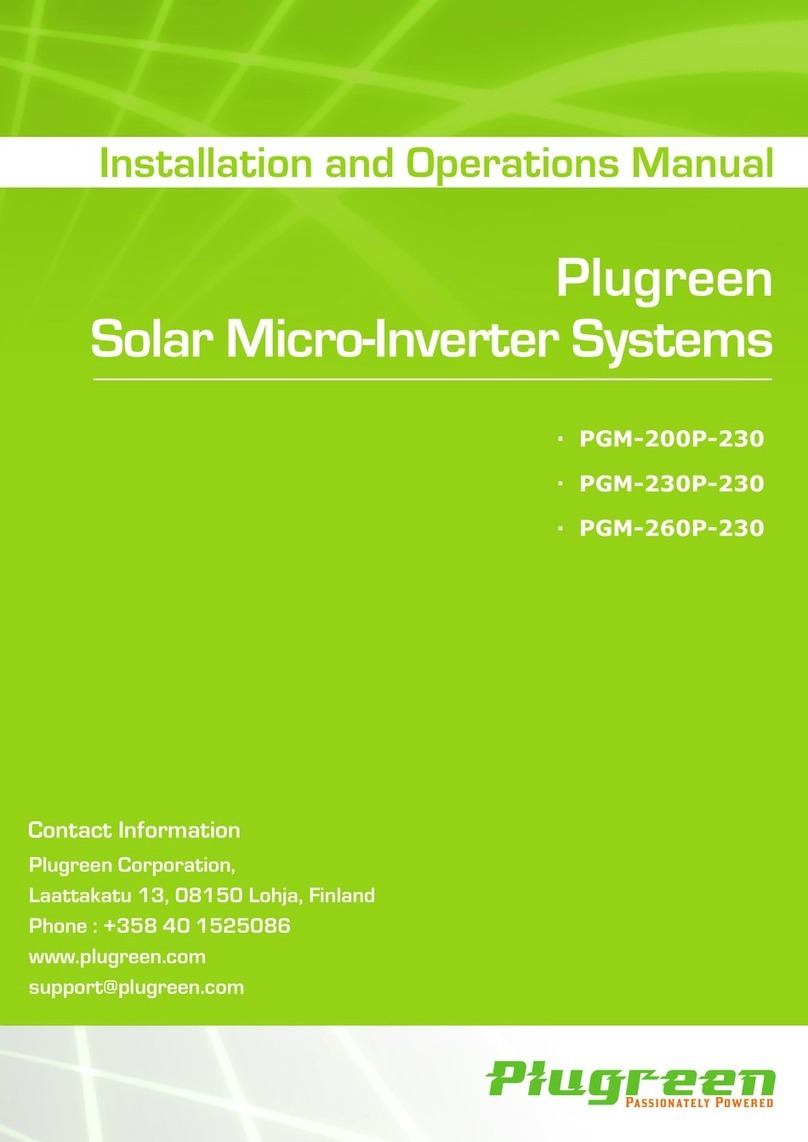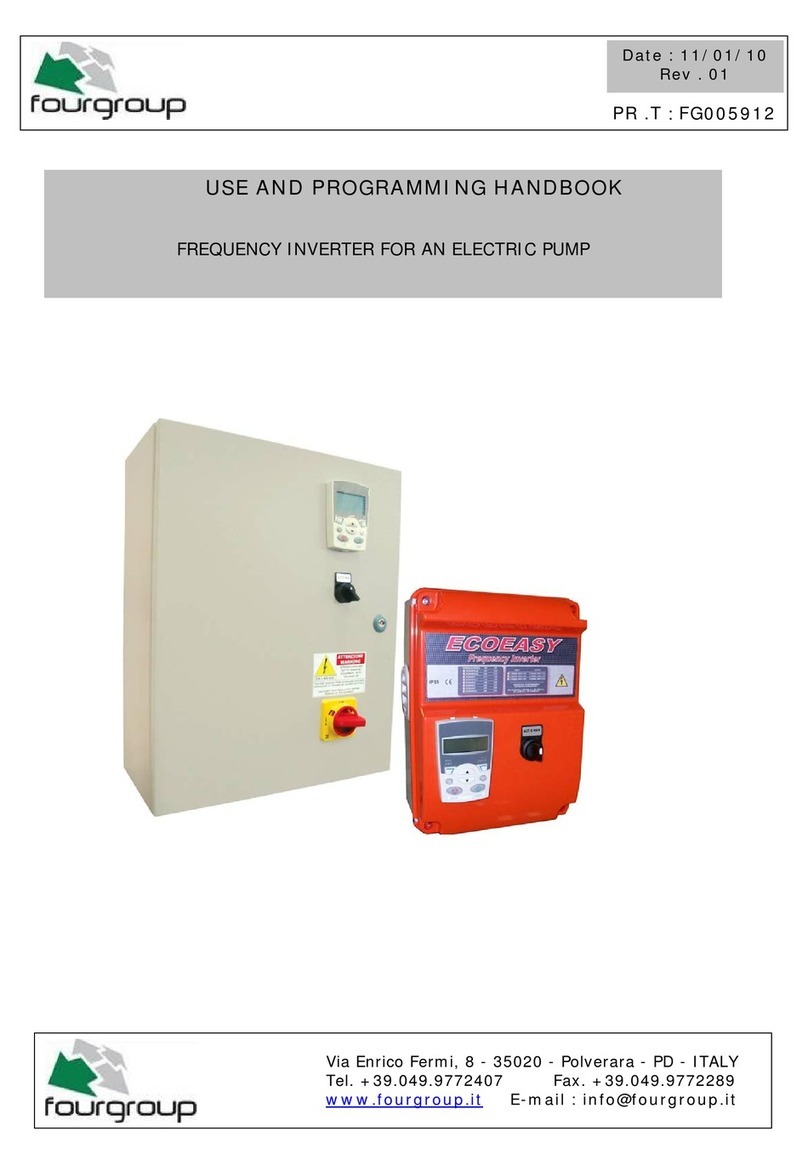6 Installation
6.1 Installation
Attention:
Checking environment where system is installed.
Check whether the installation site does not fall into none of the following conditions:
1. The ambient temperature is outside the range of tolerable ambient temperature
( -20°C to +60°C, -4°F to +140°F).
2. Higher than the altitude of about 2,000 m above sea level.
3. Prone to damage by sea water.
4. Close to corrosive gas or liquid (for example, locations where chemicals are
processed, feed lots or poultry).
5. Exposed to direct sunlight.
6. Prone to flooding or high levels of snow pack.
7. Minimal or no air flow and high humidity.
8. Condensations.
9. Exposure to steam, vapor, or water.
10. Exposure to direct cool air.
11. Near television antenna or antenna cable.
12. Ventilation is not enough to cool the inverter, that is to say, outdoors, the
inverter requires. At least 30 cm (see table 2) of clearance between the button
of the unit and the ground, indoors, it is recommended that the same
clearance between the button of the unit and the floor be used. Installing the
inverter in the place mentioned above may cause the malfunction of the
system caused by water or high temperature inside the inverter. Please let
usersknow that Hosola will not compensate the fault caused by the above
situation.
Note(for Hosola Smart series):
1. The PV modules should have an IEC61730 Class A rating or equivalent. The
resistance between PV positive or negative and ground must be more than 600kohm.
2. This product can cause a dc current in the external protective earthing conductor.
Where a residual current-operated protective (RCD) or monitoring (RCM) device is
used for protection in a case of direct or indirect contact, only an RCD or RCM of Type
B is allowed on the supply side of this product.
3. The installation place should be away from humid or corrosive substance.
4. The Hosola inverters can be used outdoor.
5. Users can check the firmware version via LCD function as shown below.
6. The Isc PV is can be referred as Max. DC current.
7. The AC output inrush current is 20A with duration time 2us.
8. The maximum output fault current of AC output is below 15mA RMS.
9. The maximum output over current protection can be referred as Max. output current.
14 15
Warning:
The open voltage of the PV array must be less than550V.
Over voltage may cause permanent damage to inverter .
Caution!
Installtion shall comply with local regulations and technical rules.
Installtion shall comply with the relevant instructions of EN62109-1/2.
Warning:
A warning that when the photovoltaic array is exposed to light, it supplies a DC.
voltage to the PCE.
Residual current protection:
Residual current detection and monitoring unit integrated inside,an external
residual current breaker is not required.
If an external RCD or residual current breaker is strctly required,you must use a
switch that triggers at a failure current of 100mA or higher.
